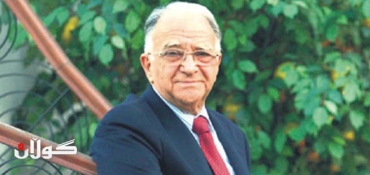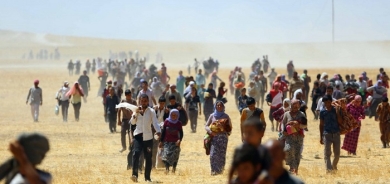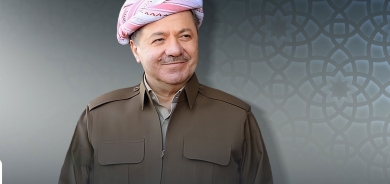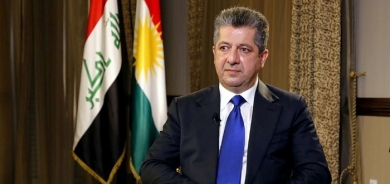Sami Kohen to Gulan: Syria has become the battleground for the foreign countries at the expense of Syrian people
July 3, 2013
Exclusive Interviews

Sami Kohen is a Turkish journalist. He began his career working for Jewish community newspapers in Istanbul, before rising to become one of Turkey’s most respected commentators on geopolitical issues. He has written a column for the daily Milliyet since 1954.An Interview with Sami Kohen
Gulan: Syria is now the major problem in the Middle East and this makes a kind of polarization in the world. How do you see the current Syrian situation and do you think that the Syrian situation will polarize more the international community?
Kohen: it is true that the situation in Syria has led to polarization and divisions within Syria on religious, sectarian and ethical bases, which is very explosive and dangerous for the whole region. Another point is that it has led to the internationalization of a local public as we see more and more interventions from foreign countries and organizations; therefore the danger is that it will become a kind of conflict for the international community, which will also be very divisive. What we have heard this week, for instance, at the occasion of the G8 meeting between the western leaders and the Russian leader reminds us of the very old days of the Cold War, a division and rivalry between two camps and that is very disturbing and dangerous. Now again we have seen recently the intervention of, very openly, Hezbolla in Syria. I mean it is not denied and it is announced and confirmed in fact that the Hezbolla forces fought on the side of Syrian forces and it is ironic when you see that Iran and Hezbolla actively involved in the fighting, and when you see the Russians saying openly that they are helping militarily because they have commitments to Assad. So they are sending all kinds of sophisticated weapons. So it is ironic when you see all this picture and when the question comes on the agenda of the western countries about what to do to help the opposition forces whether they would provide any kind of military assistance to the fighters in Syria, so it is ironic despite the action from these countries namely Russia and Iran, the west's support would be considered as intervention. So I mean who is intervening first. Anyway, I think this is a question that it can be debated in a very long way but the thing is that we will see more and more a divided world and the formation of a new clan over the Syrian conflict.
Gulan: in this complicated situation, the Geneva second conference is unable to take place, which means the political solution for Syrian situation has become very complicated. So if a political solution has become impossible, what will end the Syrian situation?
Kohen: a couple of months ago when the idea was launched about having the second Geneva conference, we all had high hopes and high expectations that finally there would be some kind of an agreement to follow up the first Geneva conference which is a failure, but bringing advantage of the experiences that the first conference produced would be a move forward to have a large participation of all the countries concerned or interested in this conflict. Unfortunately again, in principle the Russians say they are in favor of the Geneva conference, but in practical terms what they are saying can meet on their own conditions. This is not a way of conducting diplomacy. A couple of months ago, I was hoping that this diplomatic exercise would ease the tensions and perhaps even put an end to the hostility and fighting in Syria. People are killed every day by dozens. For God's sake, the main thing is to stop the war. The big powers should force the Syrians to cease the hostilities and prepare for negotiations, but we are very far of it, the fighting is still going on in Syria and the post text of convening a new Geneva conference is very obscure and dim.
Gulan: how long does the international community continue to be silent and make Syria the battleground?
Kohen: Syria has become the battleground for big power politics and the political forces that are fighting within Syria are manipulated by the forces outside Syria and the camps are quite clear. There are, on the one hand, Iran, Russia, and Hezbolla, and on the other hand the supporters of the opposition forces namely Saudis, Turkey and to some extent some of western countries. The USA has not been involved directly so far, Germany is not with arming the opposition; France and Britain have not been helping the opposition so far. That is why the opposition is upset of the lack of military assistance from the west. So you have a very confused situation, but the fact is that Syria has become the battleground for the foreign countries at the expense of Syrian people who are the one suffering the consequences.
Gulan: Despite their decision to give arms to the Syrian opposition, the west and the United States are afraid of the falling of these weapons into the hand of terrorists. So how is it possible to solve this issue by the west as they have fears giving arms to the opposition?
Kohen: this is also one of the confusing sides of the Syrian conflict. The Syrian opposition both militarily and politically is not a homogenous body. There are all kinds of people in the oppositions, there are liberals, secularists, Islamists, leftist, etc. it is the combinations of all various factions. This is perhaps to some extent permissible as far as politics, but when it comes to the military wing of the opposition, the extremist Islamists are taking advantage of the situation and trying to control the things as much as they can. So, the USA and the west perspectives are very discouraging because of having opposition forces which are not only divided but also led to something different. So, the dilemma that the west and the USA are facing now is in case that there would be a decision to give weapons to the opposition forces namely Free Syrian Army, those weapons would be in the hands of the Al-Qaeda kind of extremists. I think this is one of the reasons that The USA so far is very tentative in reaching the decision of whether helping them or not.
Gulan: The facts that now there is a polarization on the part of international community on Syria, to what extent does this division bring about sectarian conflict in the region and how is Turkey going to react?
Kohen: there is a danger as I have pointed out at the beginning, and the danger is that it will become more sectarian and divisive. The division is coming out between the sects—Alawites and other groups—in this geography which is similar to Lebanon. It has a multi-cultural, multi-religious, and multi-ethnic structure. So, it is very dangerous and it may spread to the entire region. The Turkish officials and the government are very concerned about the situation. They do not want to see Syria divided or fighting going on between the Alawites, the Sunnis, Shiites, Christians, the Kurds, etc because first of all it destabilizes the whole region where Turkey is in this part of the world. We have seen the rise in Taksim between people of various denominations, religions, and sects and this is hardly anything that any Turk wants to see and it is for that reason that the opposition forces have to refrain from engaging in anything that would lead to sectarian violence or divisions.
Gulan: to what extent does Syrian Situation have the influence on Iraq?
Kohen: the danger of spreading the conflict is the most disturbing part of the problem. As you know Assad took power from his father and has been engaged in activities of spreading his own ideology in neighboring countries; therefore we had an incident which undoubtedly has a connection with the regime in Syria. So, the Assad regime considers Turkey as a hostile country and the Turkish government also considers Assad regime as a hostile and even dangerous country for its own security. Coming to Iraq, I wouldn’t be surprised if there would be more evidence about Assad's involvement in the current agitation that is going on in Iraq with the sort of sectarian division and violence. So Syria as I said in the past has engaged in spreading his own ideology. Now there is still a dangerous possibility of such involvement in current time.















